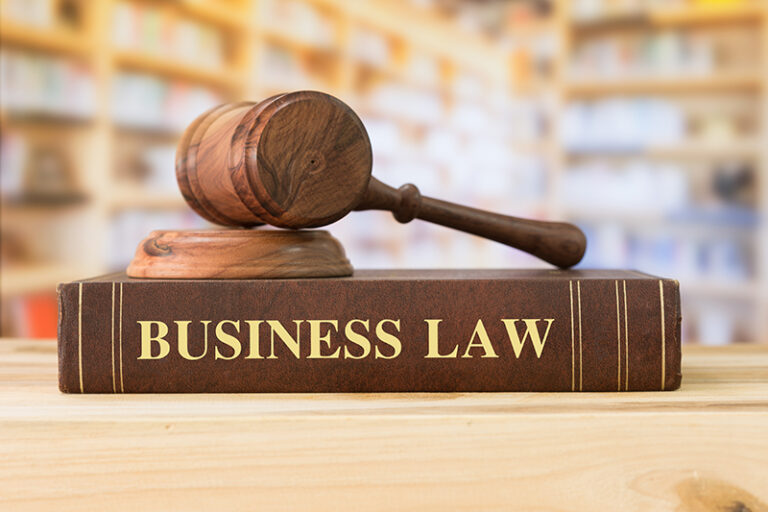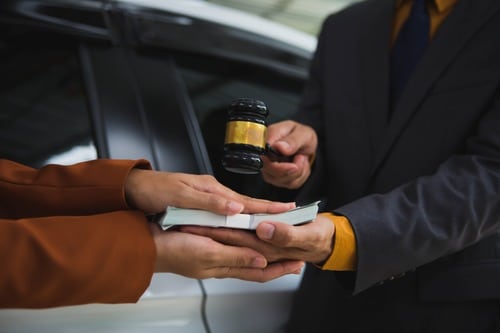- Car Accidents
Georgia car accidents can be challenging to navigate, especially when you receive a traffic ticket at the accident scene. It is a common perception that receiving a traffic ticket automatically means you are at fault for the traffic accident.
However, this is not always the case. A traffic ticket is typically issued by a police officer when they believe a driver has violated traffic laws, but it doesn’t automatically preclude you from making a car accident claim or recovering compensation.
The Role of Traffic Tickets in Car Accident Cases
Traffic tickets can significantly impact car accident cases. For instance, an insurance company often uses traffic citations to help determine the at-fault party. In a typical traffic accident, the issuance of a traffic ticket can influence the outcome of a personal injury case or a car accident claim.
However, it’s crucial to understand that a traffic ticket alone does not decide the case. Many factors come into play when determining fault and compensation.
A traffic ticket can serve as a piece of evidence that law enforcement officers believe one of the drivers violated traffic laws. For example, if police officers issue a ticket for speeding, it suggests that speeding contributed to the accident.
However, the court will examine all evidence, including the police report, witness testimony, and any available video footage, before making a final decision.
How Evidence Affects Georgia Car Accident Claims
When dealing with a Georgia car accident, evidence is key. In such cases the police report, witness testimony, and any footage from law enforcement officers’ cameras can all play a significant role. If a police officer was present at the scene and issued a traffic ticket, this ticket could be used as evidence in court.
Additionally, photos and videos taken at the accident scene, as well as witness contact information, are crucial for building a strong case.
In many car accident cases, the at-fault party might plead not guilty to the traffic ticket. This scenario can lead to delays as the court examines all the evidence, not just the traffic ticket. Judges consider multiple pieces of evidence to reach a fair verdict.
Therefore, it is important to collect as much evidence as possible after an accident, including documenting the accident scene, obtaining witness statements, and securing any available video footage.

Comparative Negligence in Georgia Traffic Accidents
Georgia follows a comparative negligence rule, which means that if you share some fault in the accident, your compensation will be reduced by your percentage of fault. For example, if distracted driving contributed to 10% of the accident’s cause, your compensation would be reduced by that percentage.
This rule ensures that even if you receive a traffic ticket, you may still recover compensation as long as your fault is less than 50%. This rule is designed to ensure that compensation is fairly distributed based on each party’s level of fault. In practice, this means that even if you are partially responsible for the accident, you can still receive compensation for your injuries and damages, although the amount will be adjusted based on your degree of fault.
Understanding how comparative negligence works is essential for anyone involved in a car accident in Georgia. It provides a framework that balances the scales of justice, allowing for a fair assessment of each party’s actions leading to the accident. This understanding is crucial for negotiating with insurance companies and presenting a case in court.
The Importance of Evidence in Car Accident Claims
When pursuing a car accident claim in Georgia, the evidence you gather can make or break your case. Evidence includes traffic tickets, police reports, witness testimony, and photographic or video documentation of the accident scene. The more comprehensive your evidence, the stronger your case will be.
Photographic evidence is particularly compelling in court. Pictures of vehicle damage, road conditions, and any visible injuries can provide a clear visual account of the accident. Likewise, video footage, whether from traffic cameras or dash cams, can offer an unbiased perspective of the events leading up to the accident.
Challenging a Traffic Ticket in Court
In many car accident cases, the at-fault party might plead not guilty to the traffic violation. This scenario can lead to delays as the court examines all the evidence, not just the traffic ticket. Judges consider multiple pieces of evidence to reach a fair verdict. Therefore, it is important to be prepared for the possibility that the other driver may contest the ticket.
When a driver pleads not guilty to a traffic violation, the case may go to court, where both sides will present their evidence. The judge will consider the traffic ticket, the police report, witness testimony, and any other relevant evidence. It is important to have strong legal representation to ensure that your side of the story is effectively presented in court.
Misconceptions About Traffic Tickets
A common misconception is that a traffic citation guarantees fault in an accident. However, traffic tickets are merely one piece of evidence. The court will consider all relevant factors and evidence before making a final decision. Thus, receiving a traffic ticket does not automatically mean you will not be compensated for your injuries or damages.
Traffic tickets are often used as a starting point for investigations, but they are not definitive proof of fault. Other factors, such as road conditions, weather, and the actions of the other driver, will also be considered. It is essential to understand that the outcome of your case will depend on the totality of the evidence, not just the traffic ticket.
The Role of Comparative Negligence in Determining Fault
Georgia’s comparative negligence rule plays a significant role in determining fault and compensation in car accident cases. This rule means that the court will assign a percentage of fault to each party involved in the accident. If you are found to be 20% at fault, for example, your compensation will be reduced by 20%.
This system ensures that even if you are partially at fault, you can still receive compensation for your injuries and damages. However, if you are found to be 50% or more at fault, you will not be eligible to receive any compensation. This rule underscores the importance of presenting a strong case to minimize your assigned fault percentage.
Seeking Legal Help for Georgia Car Accident Claims
Handling a Georgia car accident claim can be daunting, especially if you have received a traffic ticket. It is advisable to seek professional help to navigate the complexities of traffic laws and accident claims. A car accident lawyer or attorney can provide valuable assistance, helping you understand your rights and the best course of action to recover compensation.
Experienced auto accident attorneys can help you gather and present evidence, negotiate with insurance companies, and represent you in court if necessary. They can also help you understand the legal process and what to expect at each stage of your case. Having a knowledgeable attorney on your side can make a significant difference in the outcome of your claim.
What to Do After a Car Accident in Georgia
If you are involved in a car accident in Georgia, here are some steps to take:
Document the Scene: Take photos and videos of the auto accident scene, including all vehicles involved.
Gather Witness Information: Collect contact information from any witnesses.
Report to Police: Ensure a police report is filed by the responding officer.
Seek Medical Attention: Get a medical check-up to document any injuries.
Consult an Attorney: Reach out to a car accident attorney for a free consultation to discuss your case and potential compensation.
The Importance of Medical Documentation
After a car accident, it is crucial to seek medical attention immediately. Even if you feel fine, some injuries might not manifest immediately. Documenting your injuries with a medical professional provides an official record that can be used as evidence in your claim.
Follow all medical advice and attend follow-up appointments to ensure your recovery is well-documented.
The Role of Insurance Companies
Insurance companies play a significant role in car accident claims. They will investigate the accident, review the evidence, and determine the amount of compensation to offer.
However, insurance companies often aim to minimize payouts, which is why having a car accident attorney to negotiate on your behalf can be beneficial.
The Legal Process for Car Accident Claims
Navigating the legal process for car accident claims involves several steps. After filing your claim, the insurance company will investigate. If the case goes to court, both sides will present evidence, and the judge will make a ruling. Understanding this process helps set realistic expectations and prepares you for each stage.
What You Can Do to Strengthen Your Case
Understanding the impact of traffic tickets on car accident claims in Georgia is crucial for accident victims. While a traffic violation can influence your case, it is not the sole determinant of fault. Evidence, witness testimony, and professional legal assistance play vital roles in ensuring you receive fair compensation.
If you find yourself in such a situation, consult with a qualified auto accident attorney to navigate the complexities of your case effectively.
Seeking Professional Legal Advice
In conclusion, navigating a car accident claim in Georgia involves understanding how traffic tickets and other evidence impact your case. With the help of an experienced car accident attorney, you can build a strong case, challenge any misconceptions, and work towards recovering the compensation you deserve.
Always seek professional legal advice to ensure your rights are protected and to maximize your chances of a favorable outcome in your car accident claim.
Free Consultation with Hartley, Rowe & Fowler
Reach out to our attorneys at Hartley, Rowe & Fowler for a free consultation. Our experienced team is here to help you navigate the complexities of car accident claims and ensure you receive the compensation you deserve. Call us at 678-825-6004 to schedule your consultation today.










